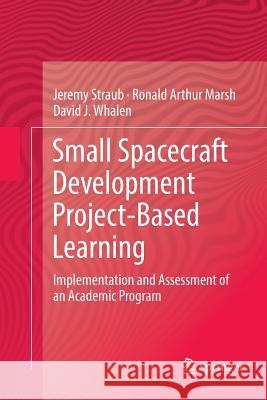Small Spacecraft Development Project-Based Learning: Implementation and Assessment of an Academic Program » książka
topmenu
Small Spacecraft Development Project-Based Learning: Implementation and Assessment of an Academic Program
ISBN-13: 9783319795157 / Angielski / Miękka / 2018 / 231 str.
Small Spacecraft Development Project-Based Learning: Implementation and Assessment of an Academic Program
ISBN-13: 9783319795157 / Angielski / Miękka / 2018 / 231 str.
cena 201,24
(netto: 191,66 VAT: 5%)
Najniższa cena z 30 dni: 192,74
(netto: 191,66 VAT: 5%)
Najniższa cena z 30 dni: 192,74
Termin realizacji zamówienia:
ok. 16-18 dni roboczych.
ok. 16-18 dni roboczych.
Darmowa dostawa!
Kategorie:
Kategorie BISAC:
Wydawca:
Springer
Język:
Angielski
ISBN-13:
9783319795157
Rok wydania:
2018
Wydanie:
Softcover Repri
Ilość stron:
231
Waga:
0.34 kg
Wymiary:
23.39 x 15.6 x 1.3
Oprawa:
Miękka
Wolumenów:
01
Dodatkowe informacje:
Wydanie ilustrowane











